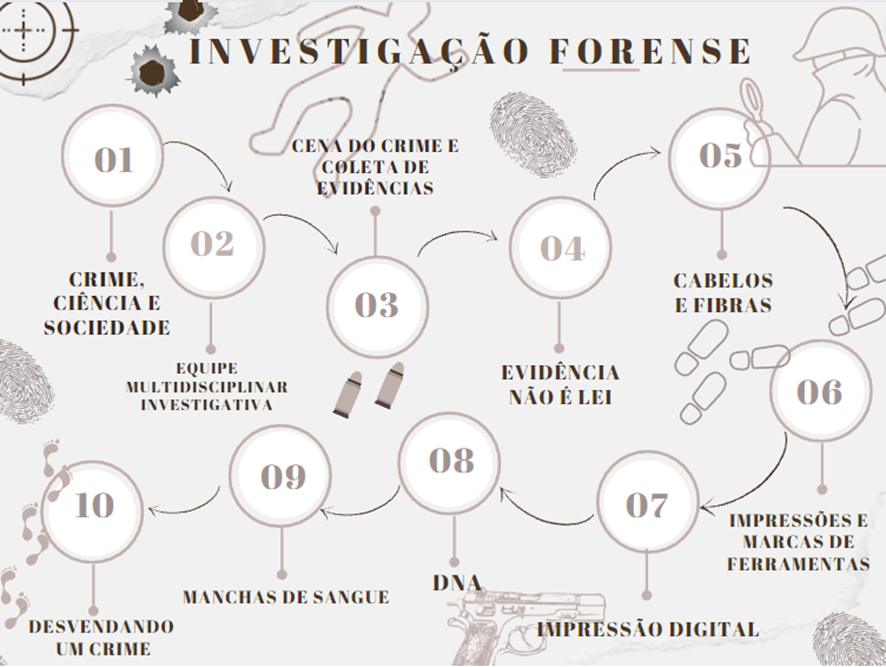EM BUSCA DA EVIDÊNCIA: INVESTIGAÇÃO FORENSE COMO ABORDAGEM SIGNIFICATIVA PARA O NOVO ENSINO MÉDIO
DOI:
https://doi.org/10.36524/ric.v9i3.2256Keywords:
Investigação forense; novo ensino médio; itinerário formativo; ciências da natureza.Abstract
This article aims to describe the application of a Formative Itinerary with the theme Forensic Investigation, applied to first grade high school students in a private school in Vila Velha city, Espírito Santo. The Law of Guidelines and Bases (LDB), determinesd that, from the year 2022, the New Secondary Education will be composed of the National Common Curricular Base (BNCC), and by five areas of knowledge/training itineraries. Through this provision, students were offered a training itinerary, which brought some topics about forensic sciences. The rate of adherence to the course exceeded expectations and split into two groups, totaling 63 enrolled. In order to encourage student participation and interaction, activities were carried out based on active methodologies, which proved to be fundamental for the construction of new subsumers. From this building, the students set up a crime scene, through which they exposed their knowledge in relation to forensic sciences to the school community, showing the effectiveness of the teaching-learning process developed along the itinerary.

Downloads
Published
Issue
Section
License
Copyright (c) 2023 Revista Ifes Ciência

This work is licensed under a Creative Commons Attribution-NonCommercial-NoDerivatives 4.0 International License.
Autores que publicam nesta revista concordam com os seguintes termos:
- Autores mantém os direitos autorais e concedem à revista o direito de primeira publicação, com o trabalho simultaneamente licenciado sob a Licença Creative Commons Attribution que permite o compartilhamento do trabalho com reconhecimento da autoria e publicação inicial nesta revista.
b. Autores têm permissão e são estimulados a publicar e distribuir seu trabalho online (ex.: em repositórios institucionais ou na sua página pessoal) a qualquer ponto antes ou durante o processo editorial, já que isso pode gerar alterações produtivas, bem como aumentar o impacto e a citação do trabalho publicado (Veja O Efeito do Acesso Livre).


